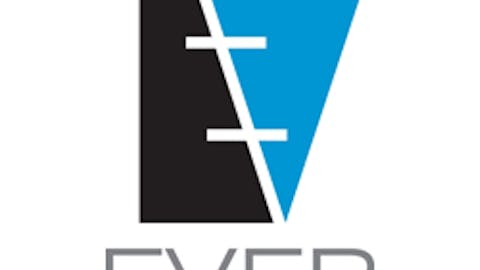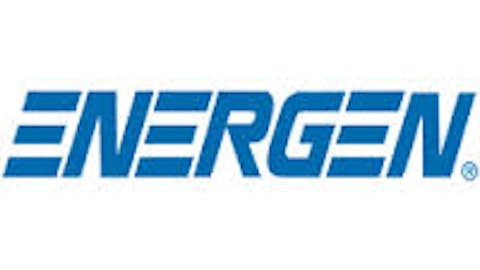I recently took a look at three reasons why one might want to buy units of EV Energy Partners, L.P.(NASDAQ:EVEP), especially in light of the company’s slide this year. While that slide could prove to be a buying opportunity, it could also signal danger that is yet to come. Let’s look at three reasons why EV Energy Partners, L.P.(NASDAQ:EVEP) might still be a sell.
Unable to sell Utica package
Last year EV Energy Partners, L.P.(NASDAQ:EVEP) and its sponsor EnerVest put 335,000 acres (104,000 net to EV Energy Partners, L.P.(NASDAQ:EVEP)) in the Utica up for sale. The companies had hoped to close a deal for these acres before the end of last year but were never able to come to acceptable terms with a buyer. Now the two are attempting to split these acres into smaller packages to attract a broader group of buyers. These acres could end up in a joint venture or sold outright, but the uncertainty surrounding the sale has hurt EV Energy Partners, L.P. (NASDAQ:EVEP) unit price.
The big problem is that the Utica isn’t turning into the top-tier play that many had hoped. While the wet-gas window looks promising, the oil window is proving to be much tougher than expected. This changing dynamic in the play has caused both Devon Energy Corp (NYSE:DVN) and Chesapeake Energy Corporation (NYSE:CHK) to look to reduce their exposure to the play while Gulfport Energy Corporation (NASDAQ:GPOR) is bulking up on that core wet gas window. The play really is a mixed bag for producers, with Devon Energy Corp (NYSE:DVN)’s wells producing next to nothing, while Chesapeake Energy Corporation (NYSE:CHK) and Gulfport Energy Corporation (NASDAQ:GPOR) have had some wells produce tremendous results. Until more wells come on line, the play will remain a big question mark for EV Energy Partners, L.P.(NASDAQ:EVEP).
Very concentrated and gassy reserves
Another area of concern is that 67% of EV Energy Partners, L.P.(NASDAQ:EVEP)’s reserves are natural gas, while 60% of its total reserves are in the Barnett Shale. While the Barnett is an excellent gas play, given the current price of natural gas there is more money to be made in natural gas liquids and oil. That’s why Chesapeake Energy Corporation (NYSE:CHK) and Devon Energy Corp (NYSE:DVN) aren’t investing much capital in the play; Chesapeake, for example, is only spending 4% of its capital budget this year on the Barnett. EV Energy, on the other hand, is spending 60% of its $100 million capital budget to develop its Barnett Shale position this year.
The other concern here is that the company has big hopes for the Utica, which is a real wild card. It’s helped by its participation in a joint venture with Chesapeake, as well as its overriding royalty interest in the wet-gas and oil windows. However, Devon is pulling out of the play completely as it found no real success. The hope is that EV Energy’s acreage turns to be more like Gulfport Energy Corporation (NASDAQ:GPOR)’s liquids-rich acreage than Devon’s.
Relationship to EnerVest Energy & Oil Sands Total Return(TSE:EOS.UN)
EV Energy Partners has a very close and synergistic relationship with EnerVest Energy & Oil Sands Total Return(TSE:EOS.UN) which owns two-thirds of its general partner. That close relationship can help EV Energy grow as it co-invests with EnerVest Energy & Oil Sands Total Return(TSE:EOS.UN) in areas such as the Barnett and Utica. That being said, these relationships can be a hidden risk to investors if the sponsor sells assets for above market prices.
For example, Gulfport has a very close relationship with Wexford Capital which has a small stake in Gulfport. The two are frequently involved in transactions with each other, most recently involving the sale of acres in the Utica from a Wexford affiliate to Gulfport for more than $10,000 an acre. While that was a top-dollar price to pay for acreage in the play, it was in the liquids sweet spot. Only time will tell if these close relationships with financial partners will work out well for investors.
Final Foolish thoughts
While there is a lot to like when looking at EV Energy, I don’t really love the company’s units even at these lower prices. The 8% yield is nice, but you can get that and more from some of its upstream MLP peers. In my opinion, the company’s assets are too gassy and too concentrated on the Barnett while its Utica position really clouds the picture as it’s not a great fit for an MLP. While there is the potential for upside, that outcome is still not that certain at the moment.
The article 3 Reasons to Sell EV Energy Partners originally appeared on Fool.com is written byMatt DiLallo.
Fool contributor Matt DiLallo has no position in any stocks mentioned. The Motley Fool owns shares of Devon Energy and has the following options: Long Jan 2014 $20 Calls on Chesapeake Energy, Long Jan 2014 $30 Calls on Chesapeake Energy, and Short Jan 2014 $15 Puts on Chesapeake Energy.
Copyright © 1995 – 2013 The Motley Fool, LLC. All rights reserved. The Motley Fool has a disclosure policy.






